Who is Uber's new boss Dara Khosrowshahi?
Global firm's CEO is a high-flying Iranian-American with a PR crisis to fix and a predecessor who's still involved
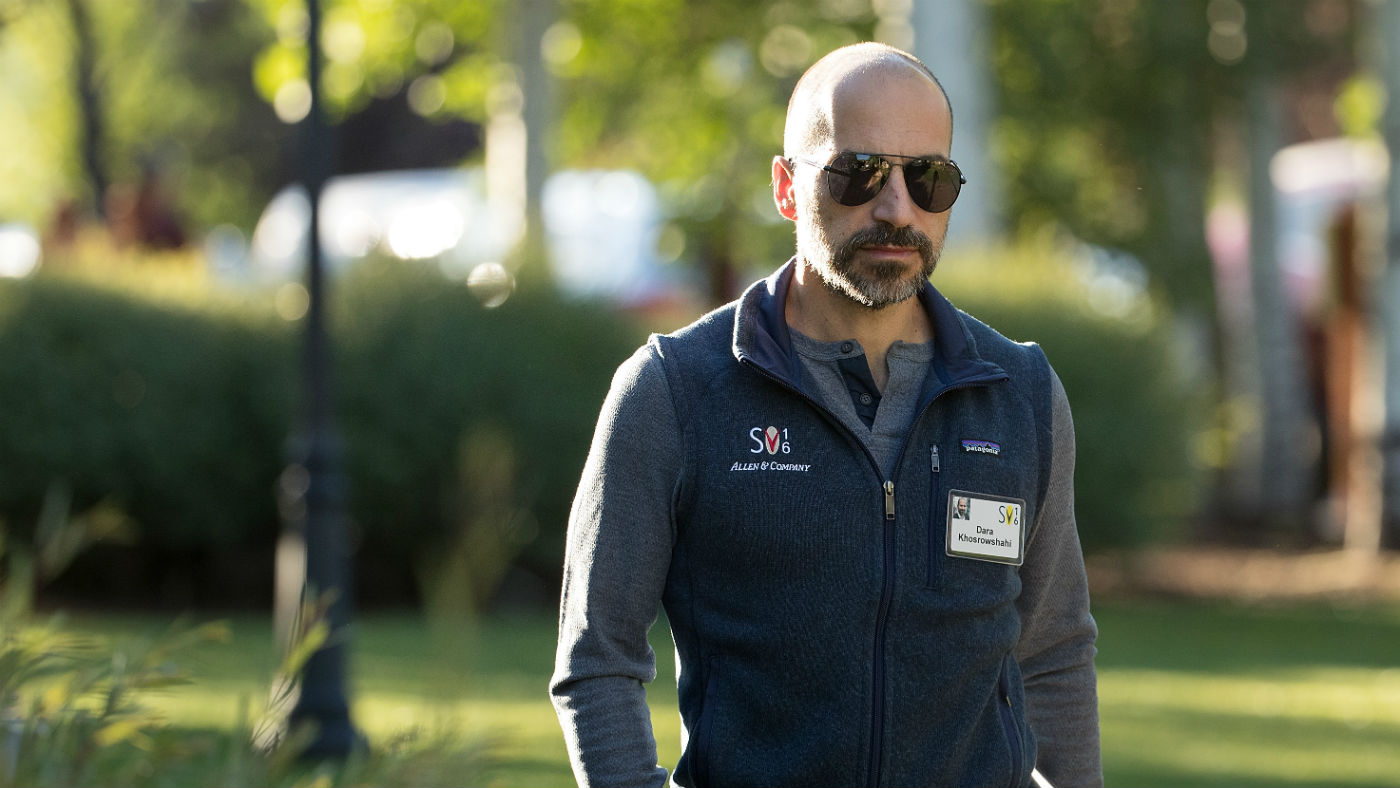
A free daily email with the biggest news stories of the day – and the best features from TheWeek.com
You are now subscribed
Your newsletter sign-up was successful
Uber gets £2.4bn from Saudi fund in transport 'arms race'
20 July
Uber has set a new record for a single fundraising round by a venture capital-backed company, thanks in part to a huge $3.5bn (£2.4bn) investment from a Saudi Arabian state-controlled fund.
In total, the ride-hailing giant secured $5bn (£3.5bn) in new financing to fuel further expansion, including in Saudi Arabia itself and the wider Middle East. It plans to invest around $250m (£170m) to roll out its services beyond the 15 cities in the region where it already operates, says the Wall Street Journal.
The Week
Escape your echo chamber. Get the facts behind the news, plus analysis from multiple perspectives.

Sign up for The Week's Free Newsletters
From our morning news briefing to a weekly Good News Newsletter, get the best of The Week delivered directly to your inbox.
From our morning news briefing to a weekly Good News Newsletter, get the best of The Week delivered directly to your inbox.
Uber launched in the Saudi capital Riyadh two years ago and has grown its customer base rapidly, especially among women, who account for 80 per cent of its rides in a country where only men are allowed to drive, notes the BBC. Across the Middle East as a whole, it now has more than 19,000 drivers and 395,000 passengers, several times the numbers of just a year ago.
The fundraising beat the previous highest for a venture-backed firm of $4.8bn (£3.1bn), which was secured earlier this year by Ant Financial, an affiliate of Chinese e-commerce giant Alibaba. It values Uber at $68bn (£47bn), in excess of 50 per cent more than the market capitalisation of General Motors, the largest car manufacturer in the US.
It reflects what the Journal describes as "an arms race over the future of transportation that is attracting the world's largest technology companies and auto makers".
Ride-sharing and car-pooling apps are threatening traditional taxi services in cities all over the world and the sector is attracting a growing army of entrants, including Google. Both Uber and Google, along with Apple and others, are also competing in a race to make self-driving cars a reality.
A free daily email with the biggest news stories of the day – and the best features from TheWeek.com
In the past month alone, Toyota disclosed an investment in Uber, Apple ploughed $1bn (£700m) into Uber's China rival, Didi Chuxing, and Volkswagen invested $300m (£208) in Tel Aviv-based taxi-hailing app Gett, the Journal records. "Earlier this year, General Motors said it invested in Lyft and together they plan to test a fleet of self-driving electric taxis beginning next year."
The Saudi investment came from its Public Investment Fund, set up to invest the kingdom's oil wealth into projects to develop the country and to diversify its financial future.
Uber joins Tesla and Google in self-driving race
20 MAY
The taxi hailing firm Uber has confirmed it is testing driverless cars in the US after announcing a Ford Fusion fitted with an array of sensors will take to the streets of Pittsburgh.
Joining the race for driverless technology, the Uber's Fusion will be used for "collecting mapping data", alongside tests of the vehicle's autonomous driving capabilities. Developed by Uber's Advanced Technology Centre, the car has radars and laser scanners, as well as high resolution cameras – all three working to map the road environment.
The ride hailing company joins a growing list of tech firms and carmakers developing autonomous technology, such as Google and Tesla. The Ford Fusion used by Uber is a car Ford itself is using for its self-driving tech programme.
Uber is also a member of a newly formed lobbying group, consisting of firms with self-driving ambitions which hope to steer lawmakers towards making self-driving cars a reality.
The company is framing its venture into the technology as part of a safety drive. Uber says that driverless cars "have the potential to save millions of lives and improve quality of life for people around the world". The firm envisages a future in which the tech will mean "less congestion, more affordable and accessible transportation, and far fewer lives lost in car accidents". It says its mission is to make transportation as reliable and accessible as running water.
Others have highlighted one or two potential ulterior motives though. BBC technology reporter Dave Lee says that "Uber's ultimate goal is a complete end to car ownership – and it's wasting no time". The company wants its driverless cars to be on demand and with waiting times of less than five minutes, something it's already achieving with human driven cars in many major cities.
The Mail highlights another big and potentially thorny issue – driverless tech would inevitably put the company's drivers out of work.
As a result, The Verge says that Uber, with its "iron grip on the US's for-hire vehicle market", is best positioned to profit from the introduction of self-driving cars.
Uber faces threat from Google car-sharing app
17 May
Uber has had a hugely disruptive effect on traditional taxi markets wherever it has launched, but now it might be about to experience life on the other side of the fence.
Once little more than a tiny tech upstart, the American car-hailing giant is now the established incumbent in a booming sector that is attracting a range of innovative competitors. Most worryingly for Uber, Google, one of its biggest backers and one of the world's technology giants, could be preparing to launch a rival service.
The Wall Street Journal reports that Alphabet, Google's parent company, has announced it is ramping up a pilot programme designed to "allow several thousand San Francisco-area workers to hitch rides to or from work [with its] popular Waze navigation app".
"Riders will pay drivers 54 cents a mile, and Alphabet won't take a cut during the pilot," the paper explains. The Waze Rider app began testing in Tel Aviv, Israel, last summer and now thousands of people use the app across the country, with the company taking a 15 per cent commission on each ride.
An Alphabet spokeswoman played down the trial, saying the company is simply gauging users' interest. She also said that unlike Uber or Lyft, drivers won't be able to make a living off Waze Rider because they are limited to two rides a day to and from work, and are paired with only one rider, with whom they have to share "near identical commutes".
But the rolling out of a cheap and easy ride-sharing option by Google, which has huge reach through its Android platform, could represent a serious threat to Uber. The two companies have previously been "allies", with a $250m (£173m) Google Ventures investment in 2013 presaging the inclusion of Uber ride prompts in Google's own maps app.
Google is not the only threat to Uber's dominance. Last week Apple announced it was investing $1bn (£692m) in the Chinese ride-sharing firm Didi Chuxing, the market leader in China, while General Motors invested $500m (£346m) in Uber's rival Lyft in the US.
Settlement
There is more bad news for Uber today. The company faces the prospect of a $100m (£69m) settlement with drivers relating to a class action lawsuit in the US.
The drivers allege they have been mistreated by being classified as freelancers instead of employees – and that they are therefore entitled to substantial backdated expenses, as well as ongoing holiday and sick pay.
An unfavourable ruling that sets a legal precedent could completely undermine the company's business model, effectively classifying it as a taxi company rather than a technology company that simply takes a fee for connecting self-employed drivers with customers.
Uber had agreed a provisional deal that would see it pay $84m (£58m) potentially rising later to $100m (£69m) to the drivers while continuing to treat them as contractors. Now the driver who originally brought the claim, Douglas O'Connor, has spoken out against the settlement and his original legal counsel, who he says obtained agreement "under false pretences, duress, and misinformation".
It is unclear if O'Connor is considered the class representative for the claim, but if so the development could force Uber to up its offer or risk losing a damaging legal ruling further down the line. The Guardian says new court filings indicate the car-hailing giant may have to cover far larger "reimbursements" of as much as $825m (£589m).
Uber pays $10m to settle second legal action over driver claims
08 April
Uber has settled a legal action brought by San Francisco and Los Angeles prosecutors over its now-discredited safety claims, taking the total cost of the dispute to potentially more than $50m (£35.5m).
The company had been sued in 2014, along with main US rival Lyft, over advertising claims that its vetting process for drivers was "better than systems traditional minicab firms used", says the BBC. Californian authorities asserted this was misleading and specifically that Uber drivers were not subjected to fingerprint checks in the same way as other taxi drivers.
While not admitting to any wrongdoing, Uber has agreed to hand over $10m (£10m). It will pay another $15m (£10.6m) if it fails to keep to the terms of the settlement, which include the company moderating the language used on safety issues.
Uber pointed out it had already agreed to most of these terms when it settled a previous class action lawsuit brought by customers earlier this year, which cost the firm $28m (£19.8m).
The company agreed to drop claims it offered "gold standard" checks and was the "safest ride on the road", as well as to rename its "safe-ride fee" of $1 in the US as a "booking fee", notes the Financial Times.
"Accidents and incidents do happen," the company said in a statement on Thursday. "That's why we need to ensure that the language used to describe safety at Uber is clear and precise."
Uber has had publicity problems related to high-profile crimes committed by its registered drivers in recent years. The BBC notes prosecutors said 25 people with criminal convictions had been approved to drive for the company, "including several sex offenders and a convicted murderer".
High-profile cases involving Uber have included a driver in India who was jailed for life for raping a passenger and a man accused of murdering six people and injuring two others in Kalamazoo, Michigan, during the course of which he is said to have taken on passengers.
Uber losing $1bn a year in China
19 February
Uber is losing more than $1bn (£699m) a year in China as it fights a price war with local rival Didi Kuaidi.
The US ride-hailing app says it is yet to make a profit in mainland China because of increasingly bitter competition. "We have a fierce competitor that's unprofitable in every city they exist in, but they're buying up market share," said Uber chief executive Travis Kalanick. "I wish the world wasn't that way."
The US car-hire service launched in China in 2014, where it competes against the country's largest taxi app Didi Kuaidi. Both firms are believed to have invested heavily to subsidize fares in the hunt for market share, betting on China's internet-linked transport market becoming the world's largest.
However, Didi Kuaidi said Uber's claims about its spending were untrue and that it is simply benefiting from its larger size. "Smaller competitors have to bleed subsidies to make up for their insufficient driver and rider network," a spokesman told Reuters.
Last month, Kalanick said spending on pricing strategies was "how you win" in China and that his company aimed to beat Didi Kuaidi through deploying the spending more efficiently.
"I prefer building rather than fundraising," he told BetaKit. "But if I don't participate in the fundraising bonanza, I'll get squeezed out by others buying market share."
Uber currently operates in more than 40 Chinese cities and plans to be in 100 by the end of the year. In 2015, Didi Kuaidi invested $100m in Lyft, a rival, which operates only in the United States.
-
 The Week Unwrapped: Have televised confessions quelled protests in Iran?
The Week Unwrapped: Have televised confessions quelled protests in Iran?Podcast Plus, why has Elon Musk turned from Mars to the Moon? And will the BBC prove to be a puzzles champ?
-
 The week’s best photos
The week’s best photosIn Pictures An Andean god, a rogue squirrel, and more
-
 9 products to jazz up your letters and cards
9 products to jazz up your letters and cardsThe Week Recommends Get the write stuff
-
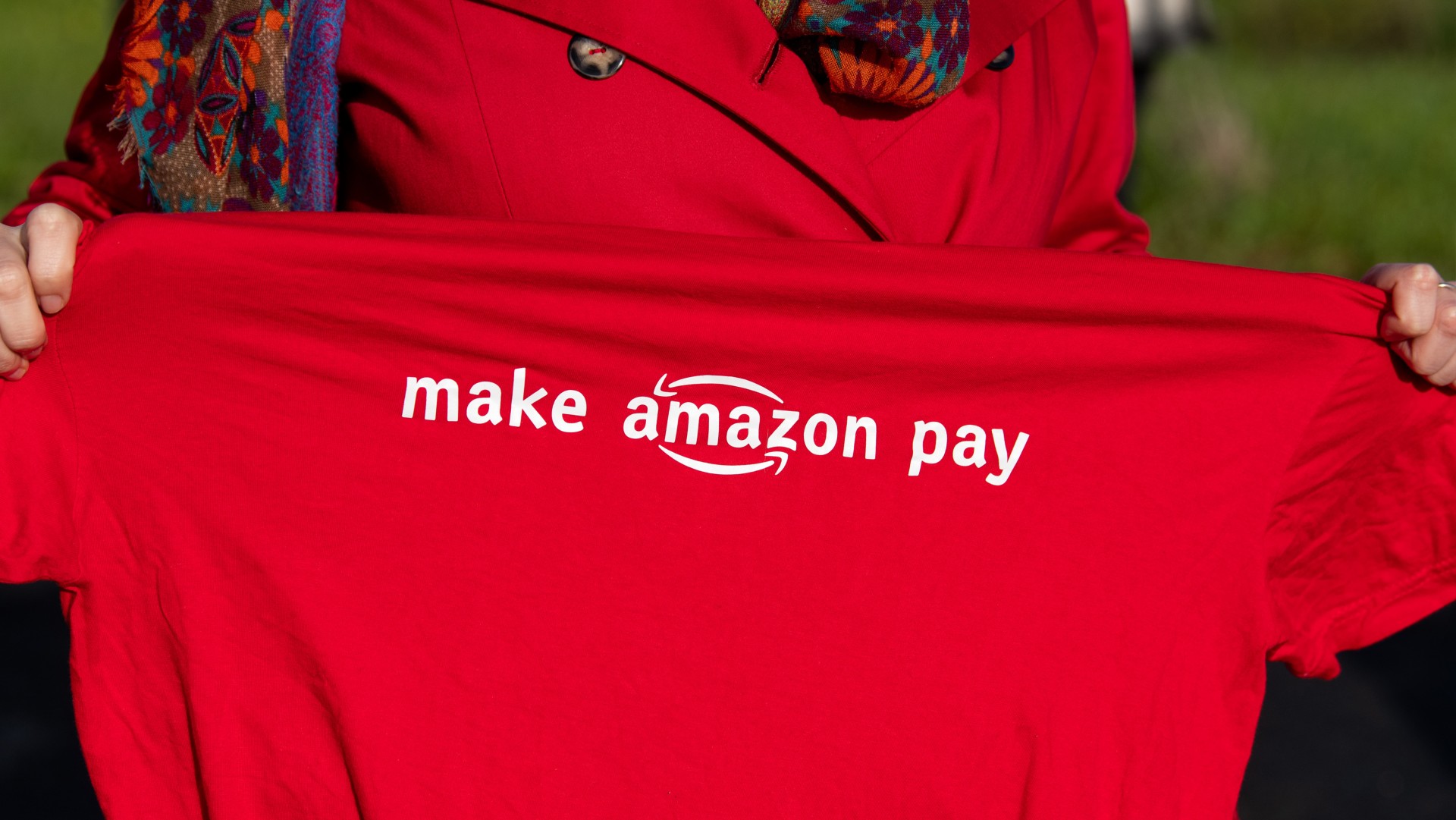 How Amazon’s first UK strike could be a sign of things to come
How Amazon’s first UK strike could be a sign of things to comefeature Big Tech is facing increasing pressure from unions as cost-of-living crisis fuels nationwide unrest
-
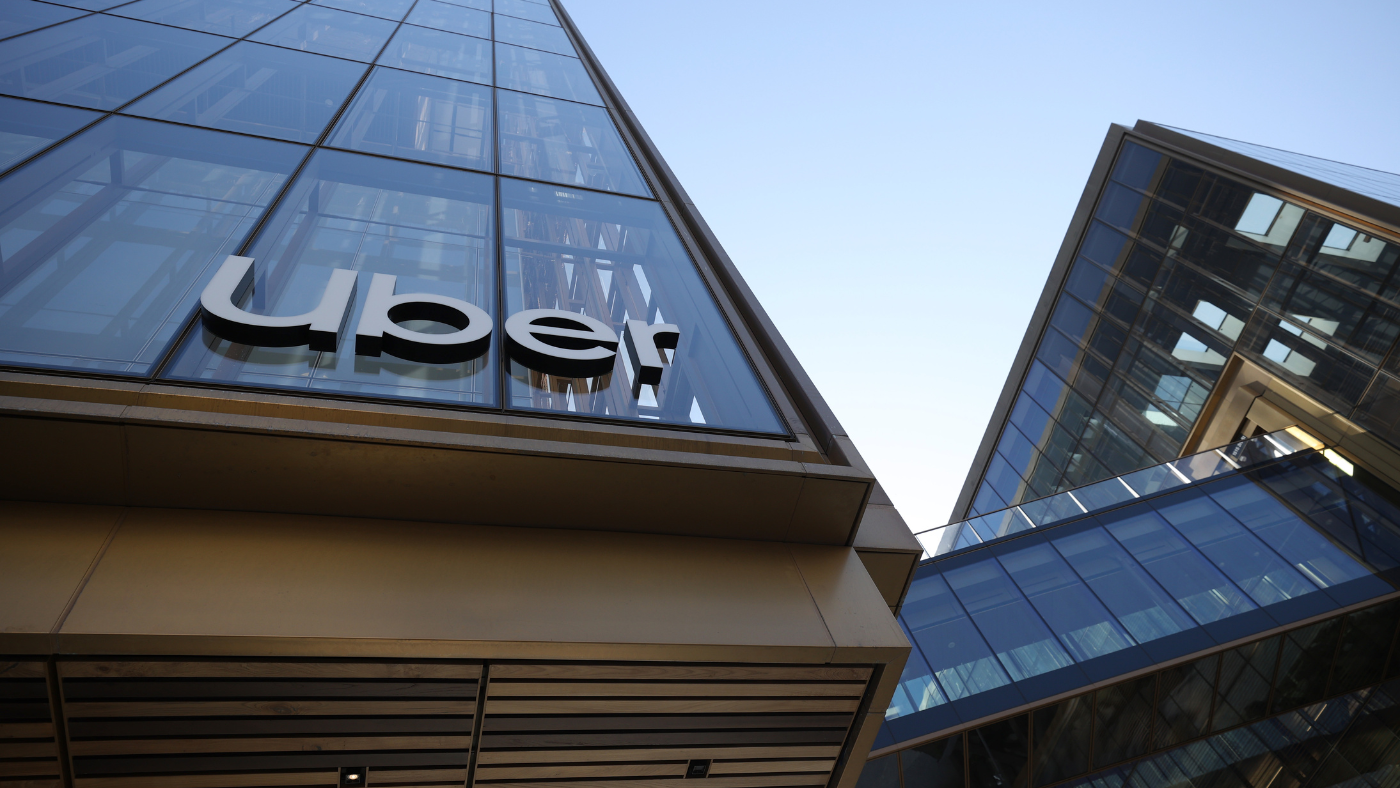 Uber files: what ‘unprecedented leak’ revealed
Uber files: what ‘unprecedented leak’ revealedSpeed Read Investigation exposes extent of government lobbying by Silicon Valley start-up between 2013 and 2017
-
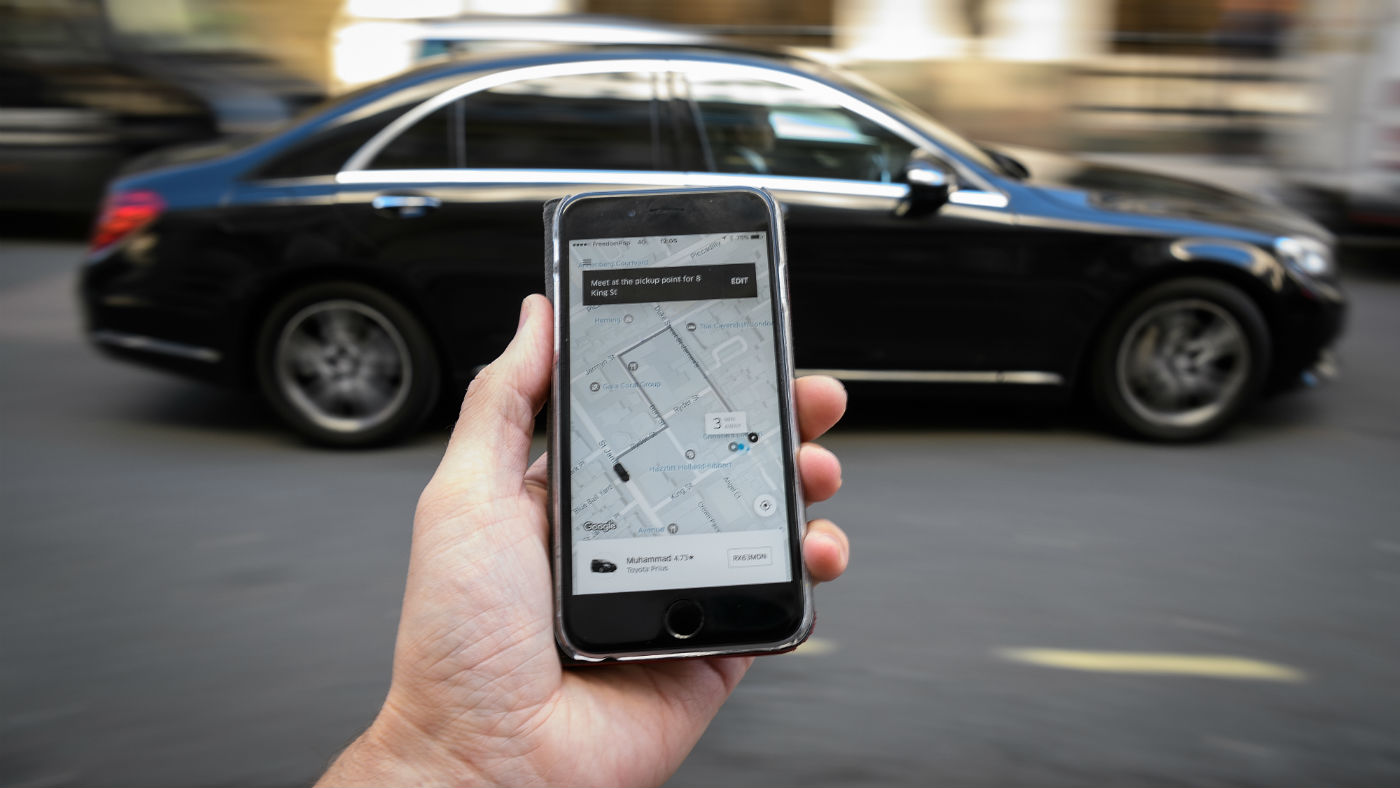 Uber vehicle fleet to be fully electric by 2040
Uber vehicle fleet to be fully electric by 2040Speed Read Ride-hailing company is setting 2030 target for UK in new plan to tackle climate crisis
-
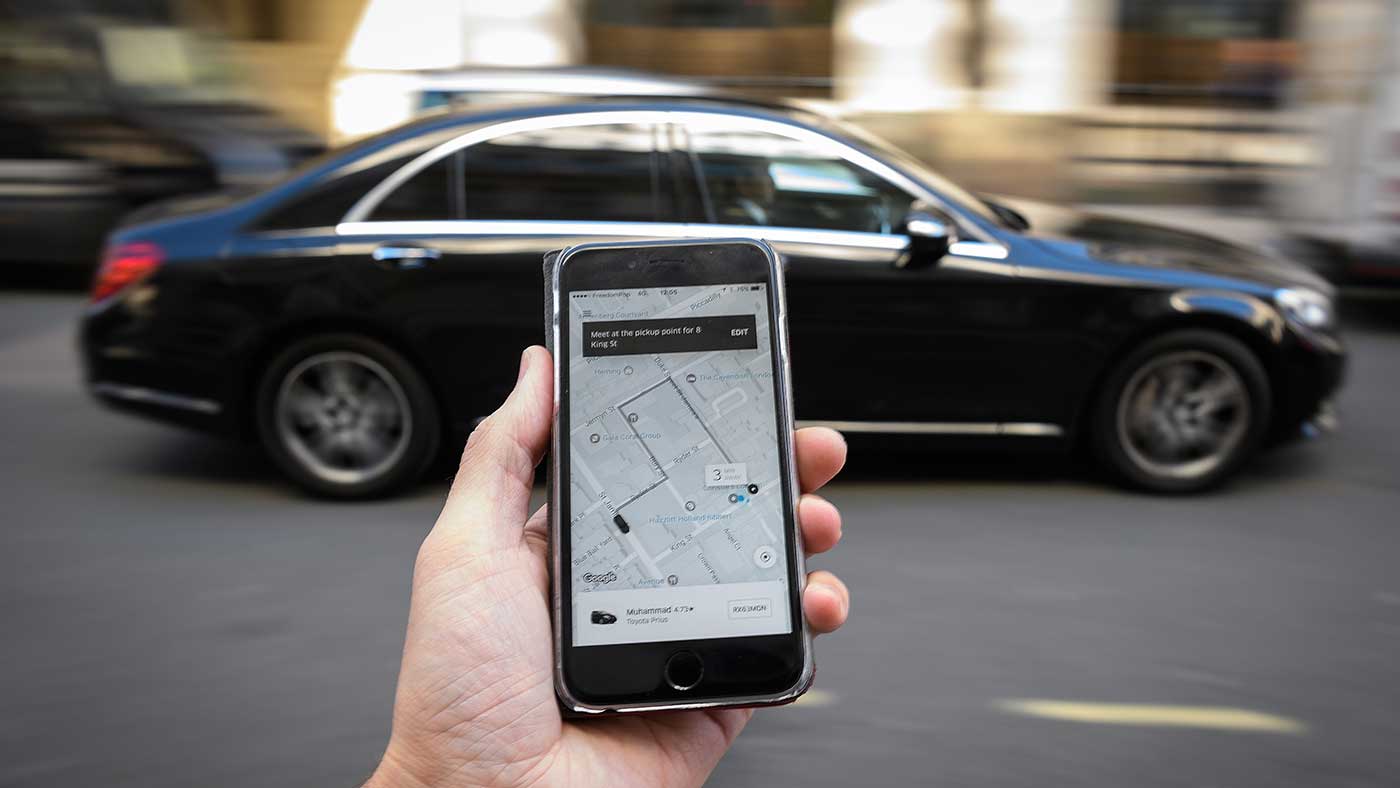 Uber’s licence renewed for two months in London
Uber’s licence renewed for two months in LondonSpeed Read Ride-hailing app lost its bid to reinstate its full operating licence in the capital
-
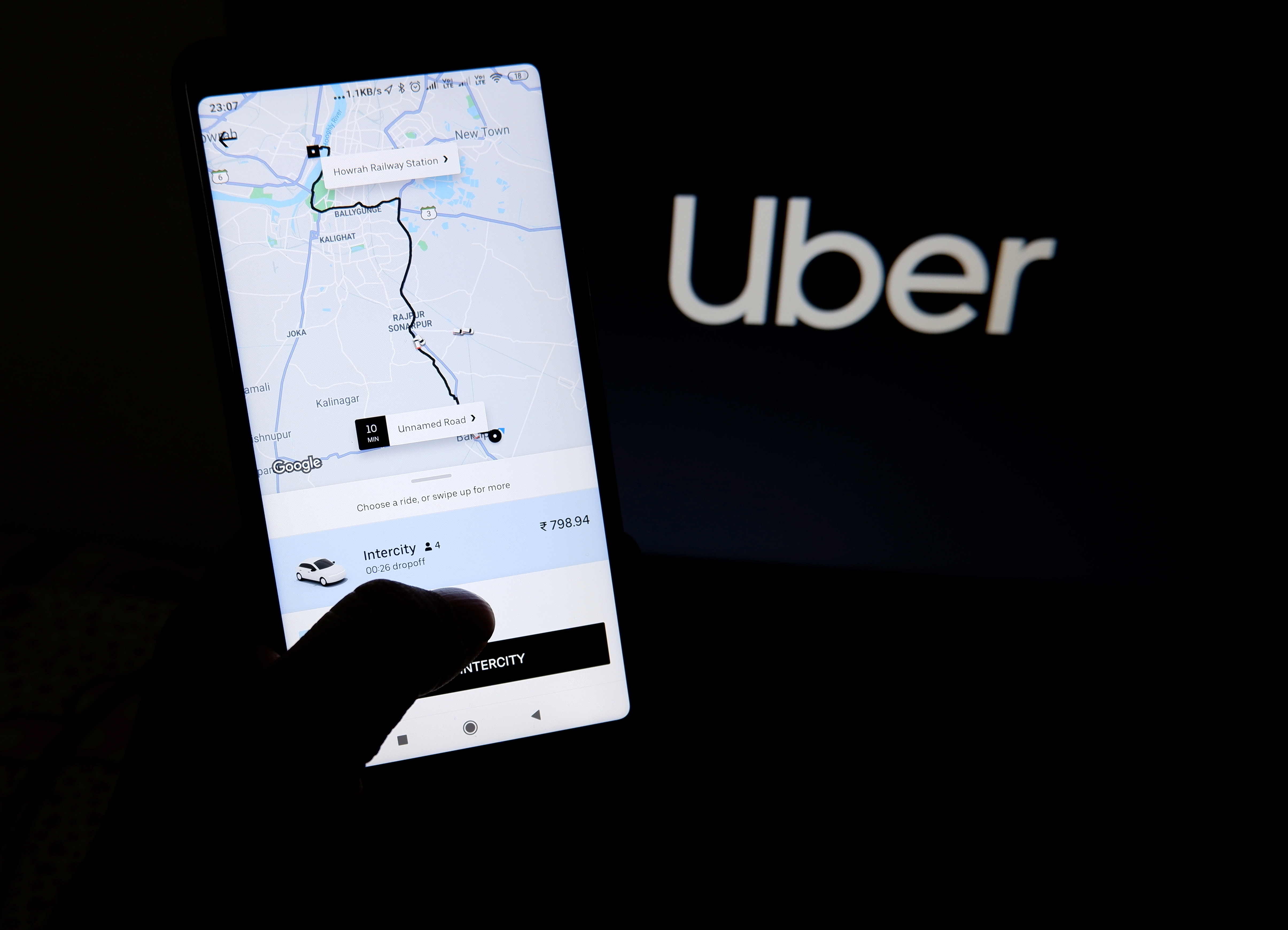 Uber reports $5.2 billion loss in Q2
Uber reports $5.2 billion loss in Q2In Depth The ride-hailing giant also revealed its slowest revenue growth ever
-
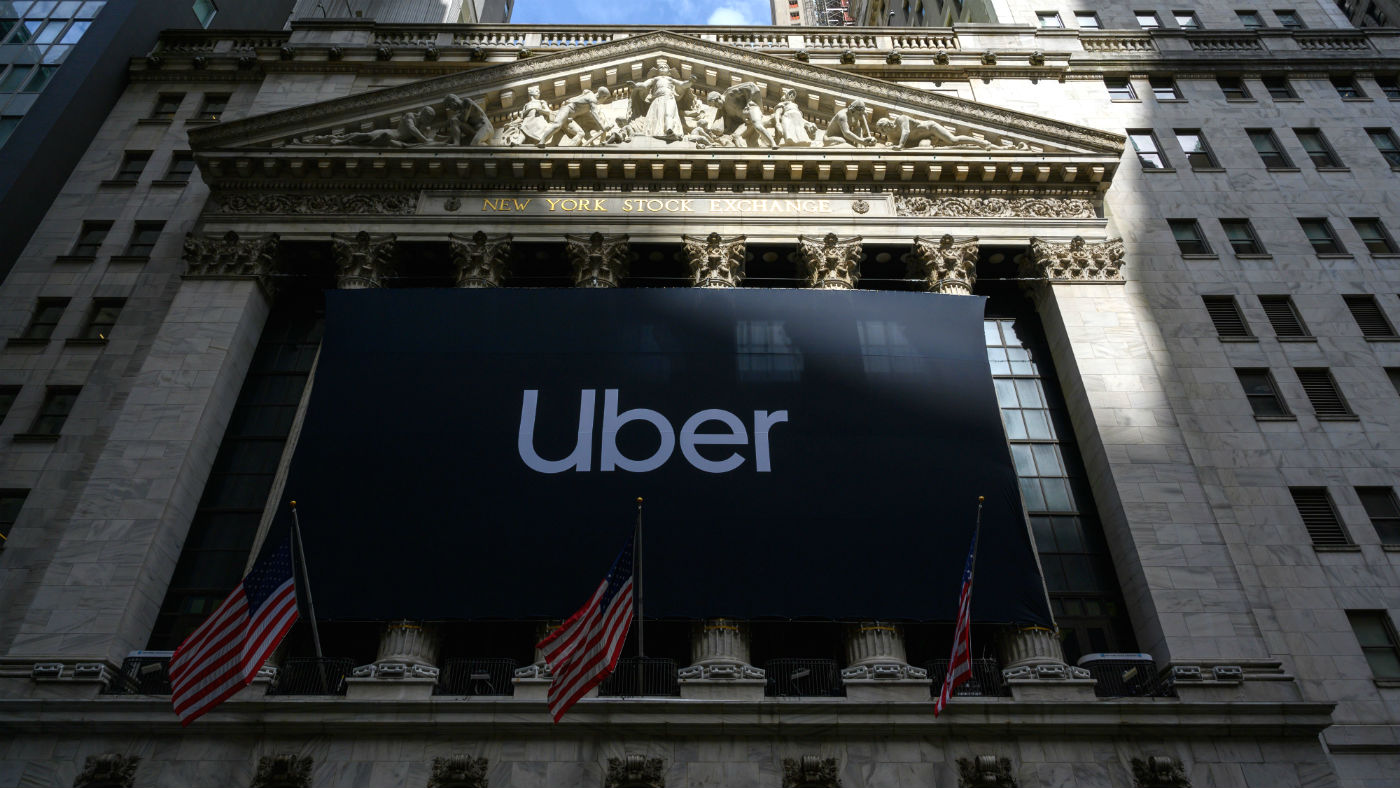 Are we headed for dotcom bubble 2.0?
Are we headed for dotcom bubble 2.0?In Depth Flotations of loss-making firms hit 2000 levels amid warning signs bubble could be about to burst
-
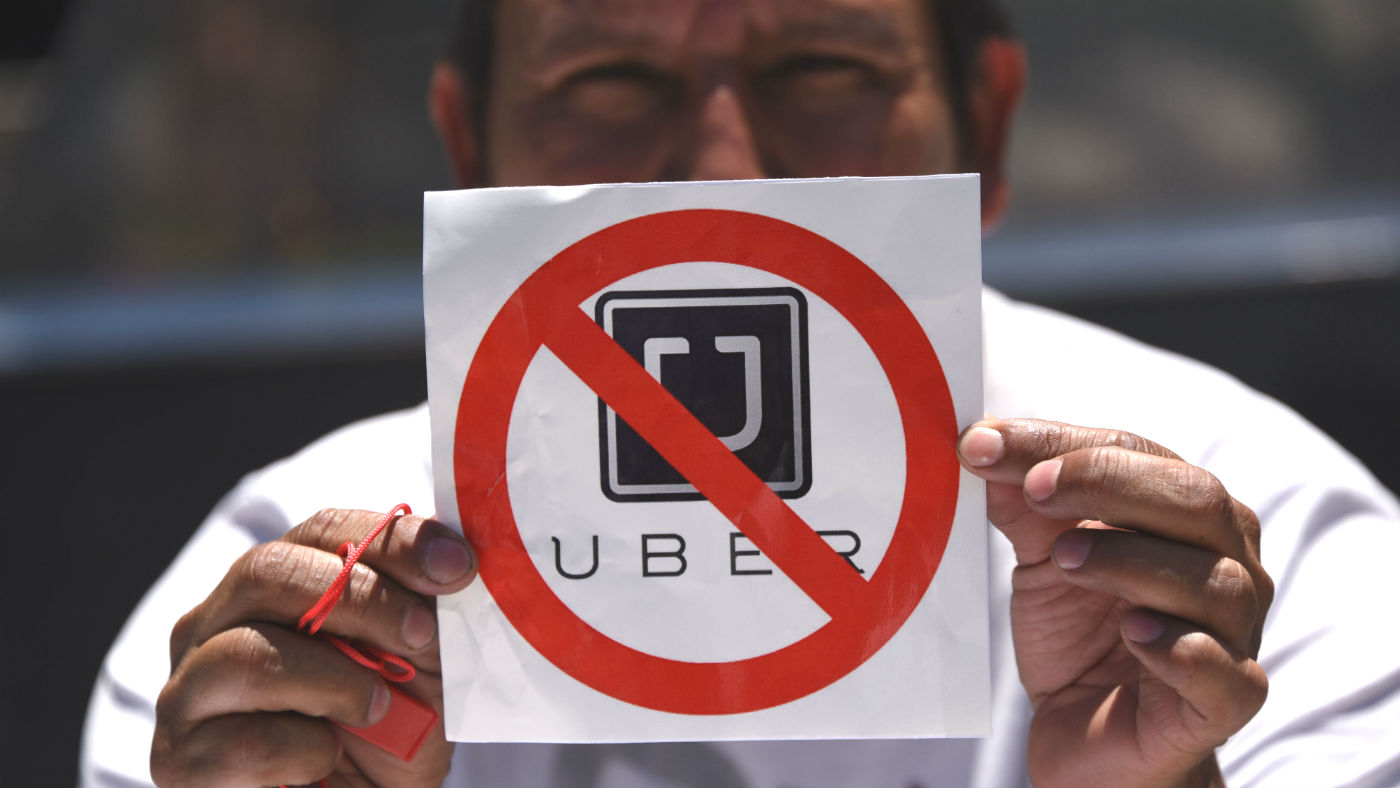 Uber drivers stage global strike ahead of IPO
Uber drivers stage global strike ahead of IPOSpeed Read Walk-out timed to coincide with Uber’s much-anticipated $100bn stock listing on Friday
-
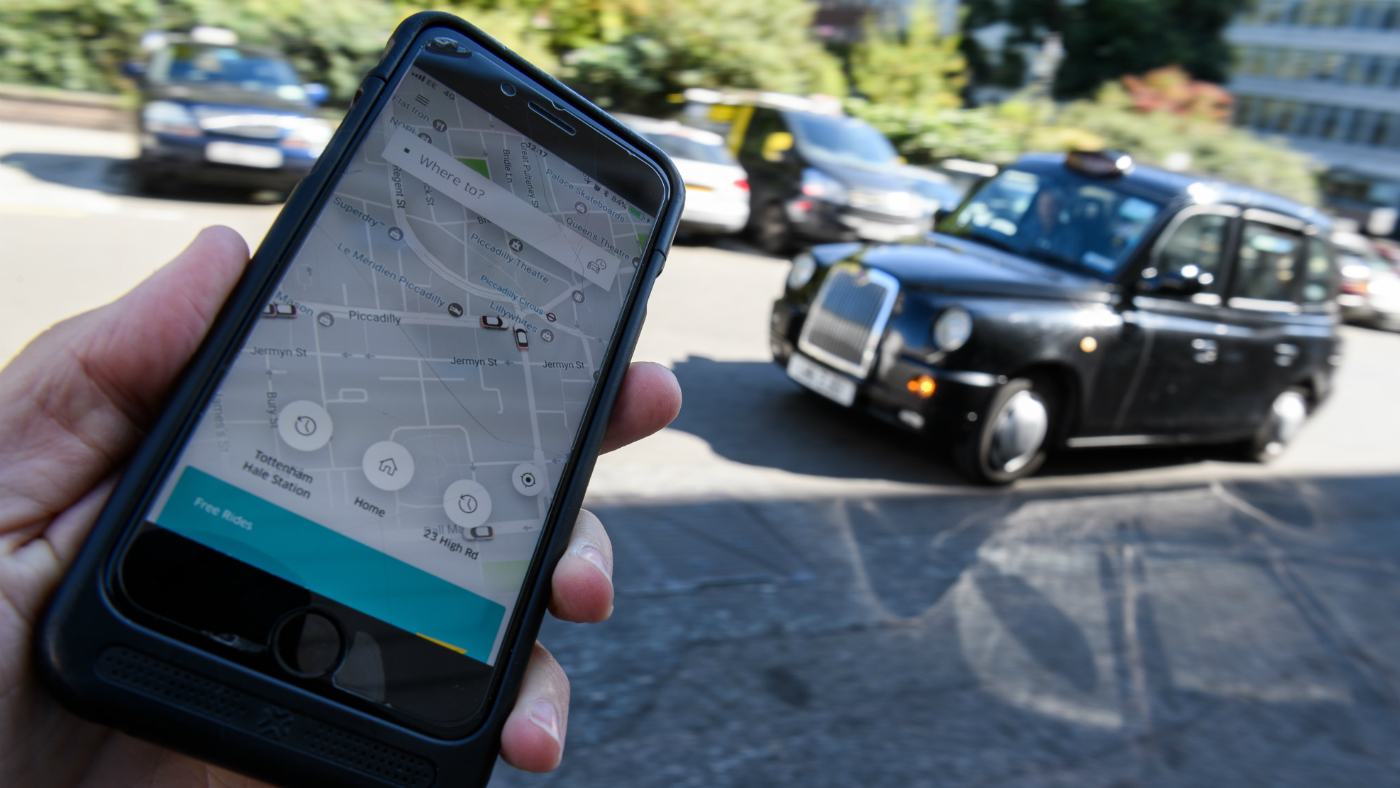 Why Uber is in court again
Why Uber is in court againSpeed Read Ride-hailing platform fighting to restore London licence